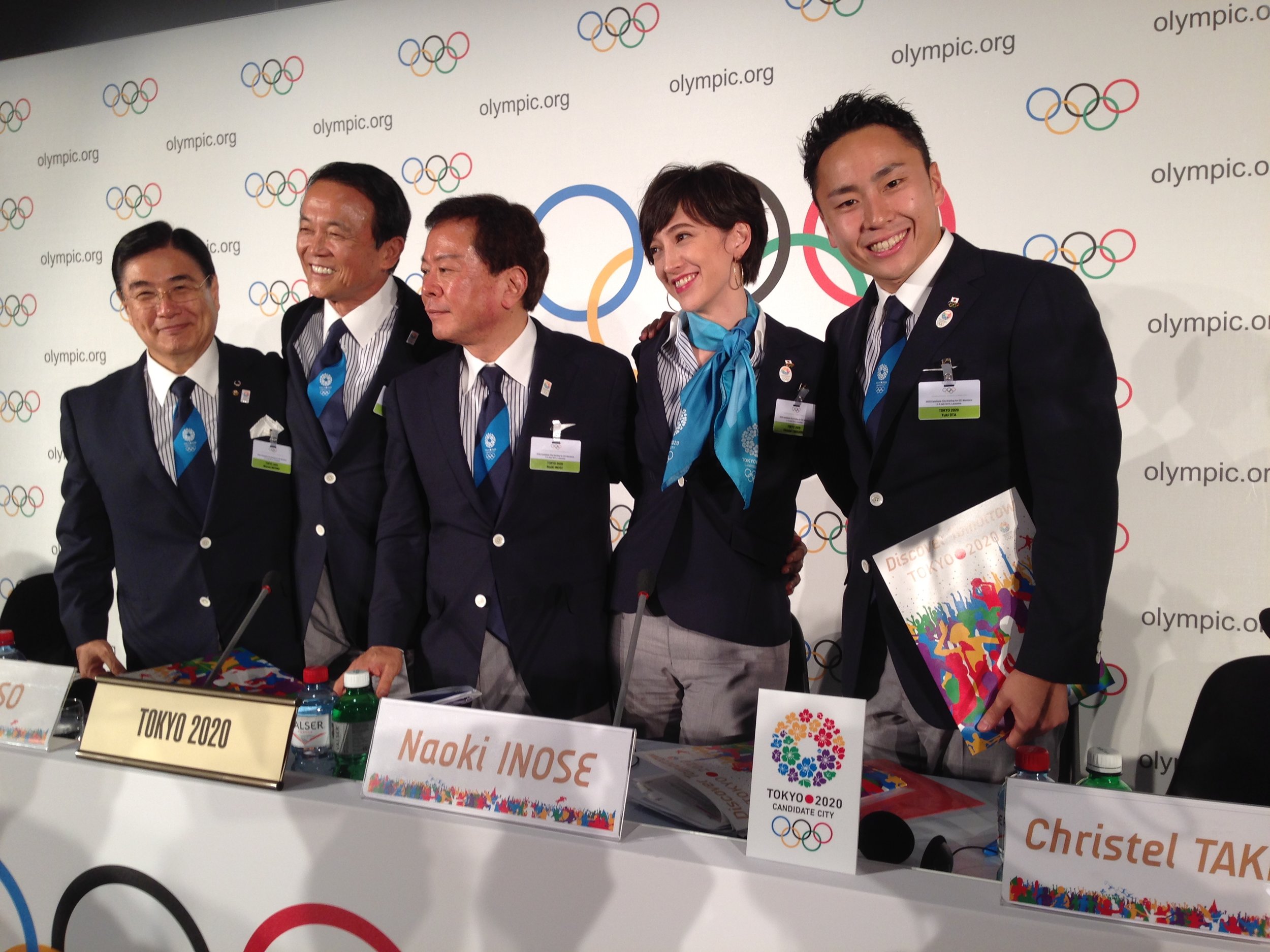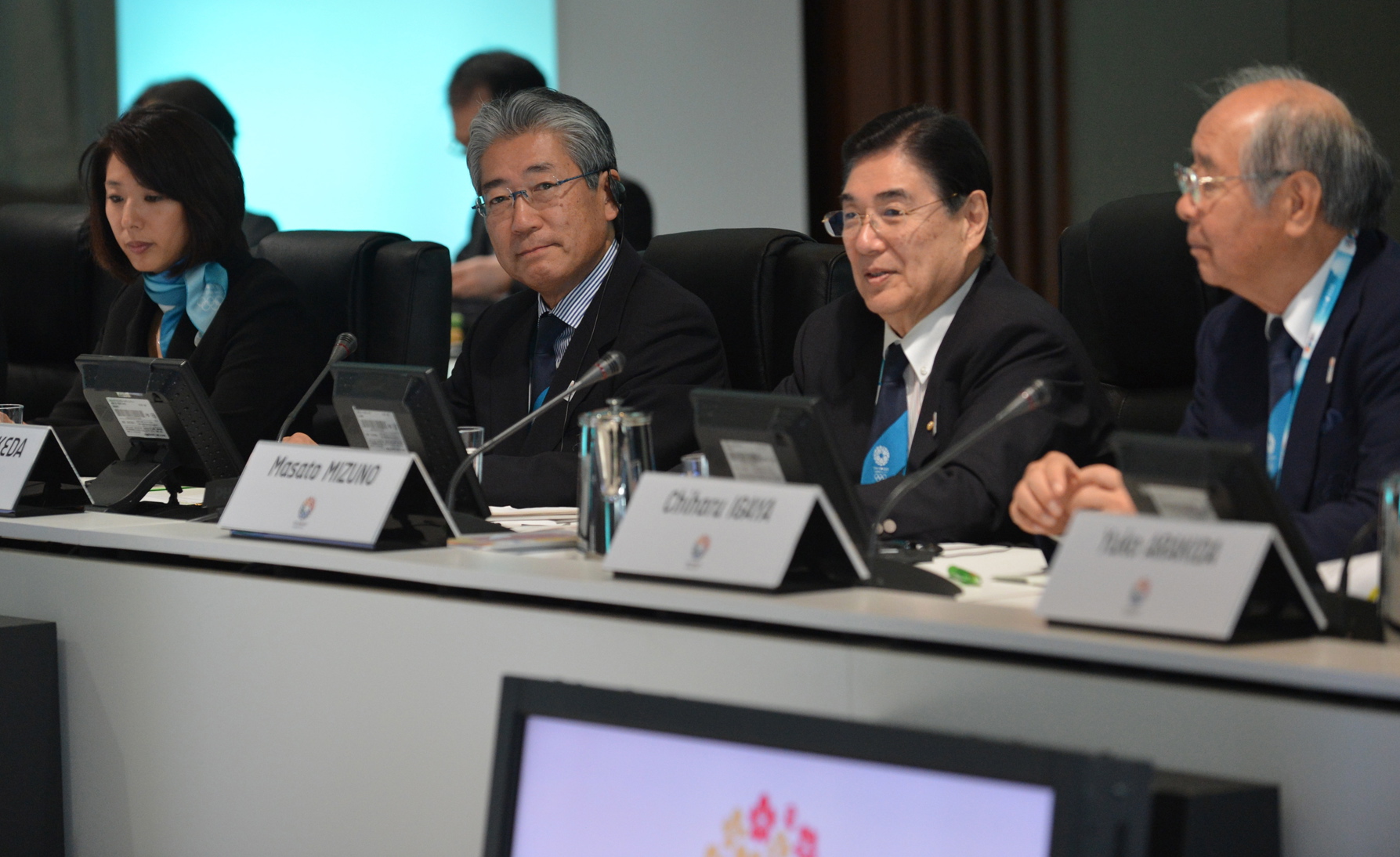LAUSANNE, Switzerland -- Four years ago, the bid team for Rio de Janeiro's campaign for the 2016 Summer Games came here and unveiled The Map. It was so simple, so breathtakingly elegant, so powerful. In a single stroke of unassailable logic, it showed it all: the Olympic Games had never been to South America.
Three months later, when the International Olympic Committee convened in Copenhagen to vote for the site of the 2016 Games, Rio rolled to a runaway win.
On Wednesday, the three candidates for the 2020 Summer Games -- Istanbul, Tokyo, Madrid -- took their chances for the first time before the full IOC, each hoping to generate the same sort of lightning that jolted Rio.
There was no vote Wednesday. That will come Sept. 7, at another all-members assembly in Buenos Aires. Instead, the idea Wednesday was, again, elemental -- to spark momentum and roll to Argentina.
All three candidates were judged to have performed well by the IOC members. But -- the clear surge Wednesday went to Madrid.
As Alejandro Blanco, the head of the Madrid 2020 bid had put it in a briefing Tuesday with a small group of reporters, "I hope people look into our eyes and see the true passion we have," and by all accounts that's exactly what happened -- the Madrid bid jolted by the appearance on stage of Crown Prince Felipe, who drew wide praise for his energy, enthusiasm and, moreover, elegance in simply telling the IOC, "Madrid 2020 makes sense."
Madrid had been thought by some -- who never did understand the dynamic -- to be lagging in this three-way race. After Wednesday -- no way.
Then again, this is July. September is still two months away. And as Juan Antonio Samaranch Jr., Spain's executive board member, cautioned, what happened Wednesday amounts in the vote column to, as he put it, "nada."
On hand Wednesday were 86 of the 100 members; a handful more are due in Thursday, when the six presidential contenders will make presentations and the IOC will also pick the site of the 2018 Youth Games from among Buenos Aires, Glasgow and Medellin, Colombia.
Some 530 accredited reporters and camera crews were also on the scene at the Beaulieu congress hall, up from 160 at the similar event four years ago. Seventy percent of the 530: Japanese.
There could be no single grand gesture Wednesday like The Map.
There's no geographical singularity at issue in the 2020 race like there was in 2016. Beyond that, the world has changed considerably in four years. Indeed, the dynamics of this race have changed profoundly over the last several weeks, tied to the fluidity of the situation in Turkey.
Once the three finalists were announced, the 2020 race has always been -- even before the unrest in Turkey -- in the first instance a referendum on Istanbul. Do the members want to continue the trend of going to "new horizons" -- say, Korea (Winter 2018) Brazil (Summer 2016), Russia (Winter 2014) China (Summer 2008)?
Implicit in such a move are big construction projects. Istanbul comes with a roughly $19 billion infrastructure bill.
Or does the IOC want to go to a more traditional venue, with lower capital costs? Tokyo, site of the 1964 Games, comes with a $4.9 infrastructure bill. Madrid, bidding for a third straight time -- and of course Barcelona played host to the 1992 Summer Olympics -- is stretching the envelope with a radically low $1.9 billion infrastructure tab. It's that low because, over the course of the prior two bids, pretty much everything there already got built.
For Istanbul, the direction Wednesday was clear. Despite everything, there of course remains sentiment for the Turkish bid. For those members who might be leaning the Istanbul way -- the trick was to offer sufficient assurance, if not reassurance, that everything not only is would but would be OK, in time reassurance theoretically translating into votes.
This must be understood: in the complex domino-world of IOC bidding, a vote for Istanbul takes Doha and Qatar out of the running for the Olympics, perhaps for a generation, and it's abundantly plain there are those within the IOC who simply do not understand -- or who are outright threatened by -- the potential of the Qatari wealth.
All the presentations Wednesday were offered in closed session so word of what happened is, at best, reliable hearsay -- the IOC opting, despite vows of best-practices and good-governance transparency, not to make the show available on a closed-circuit feed to the nearby media room. During the Istanbul presentation itself, the protests and violence were only slightly mentioned. In the Q&A that immediately followed, the members offered no questions on the topic.
As the members mingled at the IOC coffee break immediately after, the buzz was whether Istanbul had just effected a most sophisticated move -- or not.
At the news conference that ensued thereafter, Ali Babacan, a deputy prime minister for economic and financial affairs, asserted that "non-violent peaceful protest is a very basic human right" and the government "has no problem with that" but does take issue with what he called "some illegal organizations … in the crowd." He also said, "Our police maybe made some mistakes."
On the matter of social media -- Turkish prime minister Recip Tayyip Erdogan has called Twitter a "menace" -- Babacan said, "We have to drive good policies, inclusive policies" but cautioned that government is concerned such new media is "not used for illegal purposes, it is not used for bad purposes."
How this jibes with free speech rights in a liberal democracy, of course, remains uncertain.
In a later interview, Babacan said, referring again to the protests, "It is very natural in any democracy, these things happen. Every incident is a good excuse to learn from, to upgrade our practices, whether it's about freedoms or fundamental rights or so forth. It's a changing country, we shouldn't forget that. It's a changing country, an evolving country, moving for better and better."
He also said that Erdogan -- who, according to most accounts, is the government voice that matters in Turkey -- would be in Buenos Aires: "He is going to be our chief." And he noted that Erdogan, before turning to politics, used to play soccer. The deputy noted of the prime minister, "He is very into sports."
The Japanese came next, unveiling a government-sponsored initiative dubbed "Sport for Tomorrow" comprised of overseas projects aimed at promoting the Olympic movement, the creation of a Japan-based international sports academy and support for the World Anti-Doping Agency.
What the Japanese have -- no problem -- is money. They have a $4.5 billion reserve fund, cash, sitting in the bank.
What they also can tout is security. "The other day my daughter lost her wallet," the Tokyo governor, Naoki Inose, said Tuesday. "It contained $600. The wallet came back. And it contained the cash in the wallet."
What's at issue is whether they can convey to the IOC the passion they assuredly feel, and in particular the way the 2011 earthquake and tsunami in northeastern Japan have served as a catalyst for the bid, and indeed the entire country.
Takeda, proclaiming that Japan's "affected areas are now rising," said that by "maintaining your hopes and dreams, you can rise again," adding, "We can show the world … that is the power of sport … by giving them hopes and dreams through the power of sport, it is possible to rise up."
The Madrid team closed the day.
The Spanish capital would have to build only four new permanent venues and three temporary sites. In the world of Olympic bids, this is a novel approach, indeed. Because of the bids for 2012 and 2016, "The promises made then are today realities," Samaranch Jr. explained.
The Madrid bid was presented with but five questions from the IOC members. None dealt with the Spanish economy -- a notion perhaps unthinkable perhaps even six months ago.
"A realistic bid for realistic times," Blanco said at the news conference following their presentation. He also offered an extraordinarily fresh take that perhaps ought to be the new 21st-century template for what the Games should be: "Many years ago [the talk was of] the globalization of the Olympic movement," adding, "The true globalization comes today from television. The Games have to be a reality of the country, a reality of the world in which we live. Madrid presented a bid that is compact and a reality of the times in which we live."
On top of all that came the appearance on stage of the crown prince, the honorary Madrid 2020 president, an Olympian and Spain's flag-bearer at the 1992 Barcelona Games. One IOC member called the prince, who told the members he wanted Spain to again feel "promise and hope," the "star performer of the day."
"Whatever the goalposts were, he moved them," the member said.
Added Craig Reedie, the chairman of the IOC 2020 evaluation commission, emphasizing that he was observing, not endorsing, Madrid "lifted their game."
Two months now until the vote in Buenos Aires. Only one thing matters.
As Masato Mizuno, the Tokyo 2020 vice president and chief executive put it in a comment that could apply to all three bids, "We have to get more votes. We have to work hard from now until Sept. 7."






